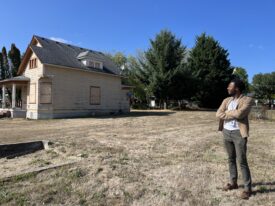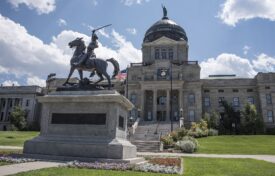I don’t know yet what to think about Seattle’s proposal to spend $1.8 billion over 20 years on transportation improvements. (Also see press coverage here and here.) Call me agnostic, until I understand the plan a bit better.
Still, at first blush, there’s certainly some stuff here to like. I’ll start with parking taxes.
About 20 percent of the proposed money (at least in the first full year of implementation) would come from a tax on commercial parking—one that will mostly affect downtown, but also paid parking lots in other parts of the city.
Generally speaking, parking taxes can make a lot of sense, since they make drivers pick up some of the costs—road space, traffic congestion, etc.—that otherwise would be borne by everyone else, including people who don’t drive. Parking taxes, by that reasoning, simply make parkers pay their fair share.
Plus, businesses that offer free parking to their employees would typically face higher daily fees for the perk—which could spur them to boost incentives for other, cheaper commuting options for their employees, such as free or subsidized transit passes.
Most importantly, higher parking costs discourage driving. For my commute (yes, I’m a car commuter, the lone one in the office), an extra 10 percent in parking fees would raise my daily commuting costs by $1—which is the same as paying an additional $1.80 for a gallon of gas. That’s one reason that commercial parking taxes were part of the Green Ribbon Commission report on cutting climate-warming emissions (more here).
On the spending side, there seems to be a fair amount of money (see page 2 of this pdf) devoted to sidewalks, bike lanes, transit, and safety improvements. There’s basically nothing for new roads (not that there’s any space for new roads in the city); and repaving might alleviate bicyclists’ complaints about the poor state of city streets. That said, I have no real idea about the overall merits of the spending package.
My biggest concern here, if I have one, is that since this is a Seattle-specific proposal, it could cause some businesses to have second thoughts about moving downtown; and concentrating businesses in a central location turns out to be a good way to encourage transit and reduce driving. A few years back, greater Vancouver thought about a similar proposal: parking fees, with revenues devoted to road maintenance and transit. But it covered the whole region, not just Vancouver proper, so the burden was more widely shared. I don’t know what happened to that proposal. But the fact that it was floated at all gives an example of what a coordinated, region-wide municipal government can do that a fragmented one can’t.








Steve Mooney
Has anyone done studies of the effects of bad roads on driving speeds? I can see an argument that not fixing potholes acts as de facto traffic calming and so that repair could be counter-productive from an cost-benefit viewpoint in the current slow-the-cars environment. That said, obviously, potholed roads also wear out cars’ shocks faster, potentially fall into such disrepair as to need much more expensive work, etc. It would be interesting to know how bad a road should get before it’s a candidate for fixing.